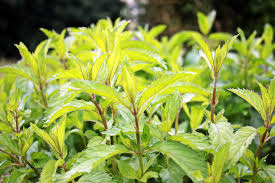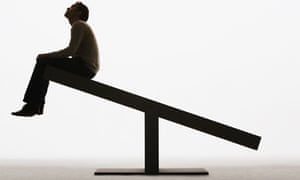
Ayurveda Herbs For Stress Management With Case Studies
According to Ayurveda, the balance of the three doshas Vata, Pitta and Kapha or the body humors viz. air, fire and phlegm, when gets disturbed, tend to manifest itself both in somatic as well as psychic spheres.

Effect of Doshas Imbalance on Stress
- Vitiation of the Vata dosha destroys mental sense and gives rise to grief and infatuation.
- Also, when the Pitta dosha or the fire humor of the body gets aggravated beyond its normal limits, may lead to mental states of fear, lust and grief.
- Similarly, imbalance in Kapha causes lethargy and in-discrimination.
These dosha imbalances disturb both the body as well as the mind.
Why Imbalance Sets In?
- Although the predominant factor in case of mental disturbances is believed to be an increase and imbalance in the two mental states of the brain viz. Rajas and Tamas.
- These two states are ascribed to Iccha (Desire) and Dwesha (Repulsion).
- It is believed that when these states of mind tend to cross the limits set by social norms and values; they tend to excite the basic humors of the body.
- And this results into degeneration of the brain powers and birth of mental diseases.
Ayurveda Herbs For Stress Management
Some Ayurveda herbs are regarded as Brain-tonics and these also provide supportive influence on the brain power. Herbs like Brahmi, Shakhpushpi, Jatamansi, Shatavari etc. are believed to be beneficial in Stress relief and empowering the brain powers.
-
Shankhpushpi
There is an Ayurvedic herb named as Shankhpushpi (Convolvulus pluricaulis) which is one of the nature’s precise answers to the brain weakness. It has been used since ages in Ayurveda therapy to sharpen intellect and increase the mental powers, as it has a cooling, calming and subsiding action on the brain.
2. Brahmi
Brahmi (Centella asiatica) is another useful brain tonic. It can be taken in powder or paste form along with milk. You could also extract juice by pounding the fresh herb and take it once or twice in a dose of 20-ml approx. Powder of this herb taken along with powdered herbs of Shatavari (Asparagus) and Ashwagandha (Winter Cherry) aids in reducing the aggravated Pitta or fire in the system and thus gives a calming effect to the brain. It is also a good cure for bilious headaches
3. Jatamansi
Roots of the Ayurvedic herb of Jatamansi (Nordostachys jatamansi) helps to tone up the brain and stabilizes mental abilities. It is another excellent restorative as it helps to subside all the three body doshas vata, pitta and kapha.
4. Shatavari
Another herb by the name of Shatavari (Asparagus racemosus) is a body and brain rejuvenator and good for intellect. All the more, it helps undo the everyday strain and induces sound sleep. This can be taken in powder form in a dose of 3 to 5 grams along with milk or mixed into equal amount of honey.
Case Studies on Ayurveda Herbs For Stress Management
Case Study 1: Valeriana wallichii For Stress Management
- Ayurvedic medicinal plant named as Tagara or Valeriana wallichii has been effective in reducing stress related disorders in humans.
- In a hospital based, clinical trial set up, 20 male and 13 female patients (average age 34. 2years ) were given 500 mg Tagara dose two times a day for a period of 60 days.
- After thorough clinical investigations, psychological rating scale, spanning day 0- day 30- day 60, it was observed that Valeriana Wallichii considerably reduced stress (p < 0.001).
- Not only this, it also improved depression making it a promising anti-stress agent for the future.
Study Conducted:
Nepal Medical College Journal. 2007 Mar; Bhattacharyya D, Jana U, Debnath PK, Sur TK.
Case Study 2: Centella asiatica And Stress Relief
Brahmi or Centella asiatica is known in Ayurveda for its positive effects in curing neurological & stress related disorders.
- In a clinical study 33 patients (18 male and 15 female; average age 33 years) were administered 70% hydro – ethanolic extract of Centella asiatica to study its effect on generalized anxiety disorder (GAD).
- They were administered 500 mg / capsule, twice daily, after meals with Brahmi and were investigated thoroughly by using psychological rating scale at baseline day 0, 30 and final day 60 and also included direct queries about current levels of experienced stress.
- The observations showed a positive result
- And this revealed that Brahmi ingestion brought down the stress anxiety levels substantially with the baseline score of anxiety index reducing to 13.1% in 30 days and 26.0% in 60 days post treatment,
- Also, the self-perceived stress also visibly improved 12.5% in 30 days and 23.2% in 60 days.
- The clinical trials prove that C. asiatica may be a safer alternative to Benzodiazepines for the therapy of stress related clinical disorders.
- And proved it is an effective remedy to reduce stress & anxiety.
Study Conducted Jointly:
State Ayurvedic Medical College and Hospital, Department of Pharmacology, Institute of Post Graduate Medical Education and Research, Institute of Post Graduate Ayurvedic Education and Research and National Research Institute of Ayurveda for Drug Development, Kolkata, India
Case Study 3: Effects of a Standardized Bacopa monnieri Extract on Cognitive Performance, Anxiety
- Bacopa monnieri or Endri or the Indian Pennywort has been used in Ayurveda for de-stressing and enhancing memory for ages and today clinical studies prove its positive effects on the same.
- A randomized, double blind, placebo-controlled, 12 weeks, clinical trial, was undertaken in Portland, Oregon to evaluate the effects of whole plant Bacopa standardized dry extract on elderly participants.
- 54 participants, 65 or older, were chosen, without clinical signs of dementia, were administered B. monnieri extract 300 mg/day or a similar placebo tablet orally for 12 weeks.
- The State-Trait Anxiety Inventory and Center for Epidemiologic Studies Depression scale (CESD) -10 depression scale and heart rate decreased over time for the Bacopa group.
- But it increased for the placebo group proving the effectiveness of B. monnieri in treating stress.
Study Conducted:
Carlo Calabrese, William L. Gregory, Michael Leo, Dale Kraemer, Kerry Bone, and Barry Oken. The Journal of Alternative and Complementary Medicine. July 2008.
About the Author:
Dr Sonica Krishan is Author and Speaker in the areas of Healthy and Joyous Living through Ayurveda, Meditation, Yoga and other Contemplative practices. She is a leading Ayurveda Professional in India. She is also Health Writer, Columnist, Editor, Ayurveda Consultant and Holistic Healing Coach. Dr Sonica is open for National as well as International Collaborations with interested people / institutions in fields of Ayurveda, Meditation and Yoga.
Dr Sonica Krishan’s Books are available at Amazon
Related Posts:
Depression – Ayurveda Case Studies, Analysis & Treatments
Best Ayurvedic Treatments for Stress Management
Top 4 Ayurveda Brain Tonic Herbs: Enhance your Brain Powers Naturally
